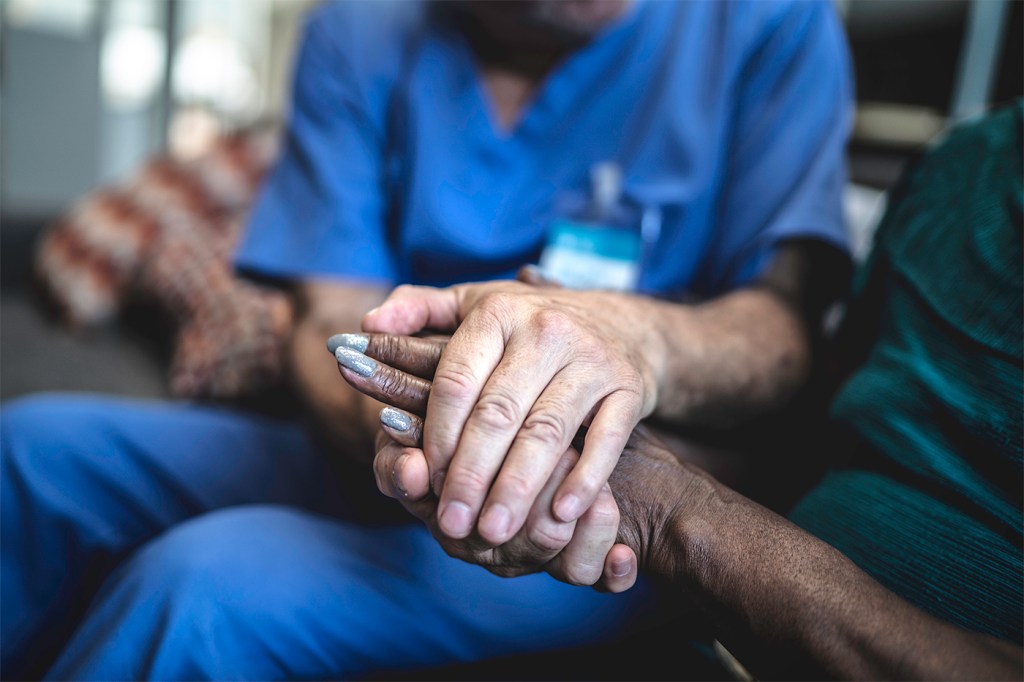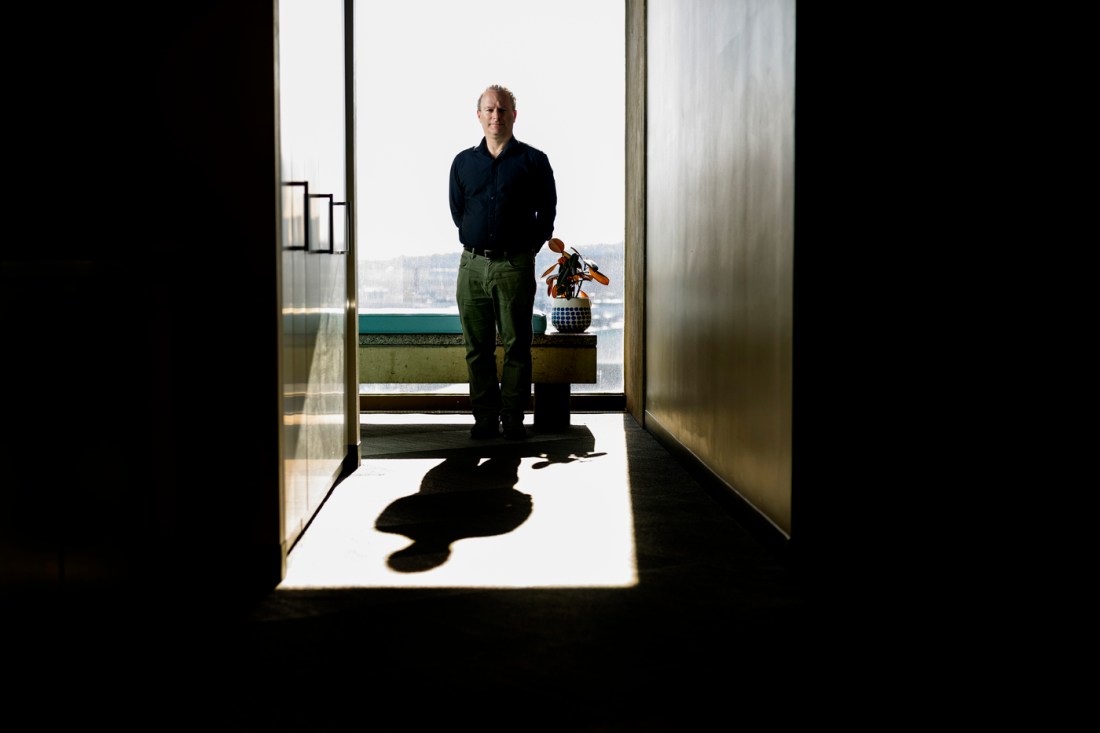Trust in physicians and hospitals plummeted since the COVID pandemic, Northeastern research says

A grateful public called doctors health care heroes and collected personal protective equipment and pizzas for them during the early, deadliest days of the COVID-19 pandemic.
But nearly four years later, public trust in physicians and hospitals plummeted, going from 71.5% in April 2020 to 40.1% in January 2024, according to a 50-state survey of U.S. adults led by Northeastern University’s distinguished professor of political science and computer sciences.
“It is obviously a very, very sizable decline,” says David Lazer, whose research was published in JAMA Open Access, a peer-reviewed medical journal.
And it’s one with public health repercussions, since individuals with lower levels of trust were less likely to get vaccinated against COVID or seasonal influenza, he says.
“It is striking that we saw distrust predicted future vaccination status,” Lazer says. “While we can’t be sure that this is a causal relationship, it is consistent with the possibility that distrust is a factor in lower vaccination rates.”

The study’s authors say “the pandemic may have represented a turning point in trust, with a profession previously seen as trustworthy increasingly subject to doubt.”
The distrust was distributed across all socio-economic groups in the 50-state survey borne of the COVID States Project, which has transformed into the Civic Health and Institutions Project, a 50 States Survey (CHIP50).
But it was particularly acute among people who had lower education and lower income, are Black, female or live in a rural area. The associations persisted even after controlling for partisanship, the report says.
The survey consisted of online interviews with 443,455 individuals 18 and older in all 50 states, with pains being taken to represent populations in terms of race, ethnicity, gender and age.
The wave of 24 surveys starting April 1, 2020, and ending Jan. 23, 2024, asked questions such as “How much do you trust the following people and organizations to do what is right” with possible answers ranging from “a lot, some, not too much or not at all.”
In waves prior to August 2022, researchers asked a variant of the question, querying respondents about “How much do you trust the following people and organizations to do the right thing to handle the current coronavirus (COVID-19) outbreak?”
Featured Posts
“We asked them if they were vaccinated, and about trust, and found that those two things were correlated,” Lazer says.
“We also looked at whether expression of distrust predicted future vaccine status, as measured by self report on the survey, and it did.”
The paper did not specifically ask about people’s opinions about masking and vaccination mandates, Lazer says, “but, yes, trust was strongly related to those things.”
In response to several open-ended questions, people with lower levels of trust commented that “doctors were just in it for the money” and communicated problems with billing issues, he says.
The levels of distrust may come as a surprise because doctors traditionally enjoy a great degree of public confidence.
Lazer and his co-authors say a 2022 survey reported that U.S. adults had “greater trust in physicians and nurses than in any other institution, including the Centers for Disease Control and Prevention.”
The early results may have represented an inflation of people’s esteem for the medical profession at a time when hospital emergency departments were besieged by COVID-19 cases, Lazer says.
The survey results are concerning to the researchers, who say most adults see a physician regularly and rely on their health care provider for information on everything from diet and exercise and smoking cessation to seatbelt use and firearm safety.
The politicization of the COVID-19 epidemic helped fracture the connection between the public and traditional sources of health information, Lazer says.
“If you don’t trust the establishment, if you don’t trust institutions, you’re more likely to go to Facebook groups who are making strange recommendations regarding health-related behaviors,” he says.
Some of the distrust has deeper roots, particularly among marginalized groups including women and people of color who may doubt the medical system is representing their interests, Lazer says.
“If people don’t see individuals like themselves in medicine, they may be less trusting of medicine,” he says.
In the short run, restoring trust in public health could mean working with trusted community partners to communicate health practices based on best evidence, including vaccination, Lazer says.
“Then there are the longer-term solutions, which is to diversify medicine, diversify science,” he says. “It’s never too late.”





